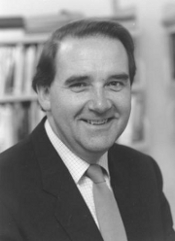CES News (153)
Pupil Premiums must meet the needs of disadvantaged children
Today the Catholic Education Service (CES) welcomed the OFSTED review of Pupil Premiums as an opportunity for the Government to ensure disadvantaged children receive the additional support.
Currently Pupil Premiums are calculated using the number of children receiving Free School Meals. Annual census data from Catholic schools in England show that the number of children receiving Free School Meals does not reflect the proportion of children from deprived areas highlighted by the Income Deprivation Affecting Children Index (IDACI).
IDACI data provided by the Department for Education highlights that despite a lower than average take-up of Free School Meals in Catholic schools, 19% of Catholic Pupil (compared with 14% nationally) come from the most deprived 10% of areas. Likewise the data shows that Catholic schools have consistently smaller proportions of pupils from least deprived areas.
The CES is keen to promote a pupil premium calculated from a number of indicators which take into consideration addition indicators including Free Schools Meals and IDACI.
Greg Pope, Deputy Director of CES said “We support the government’s aim to ensure that funding for children from disadvantaged families is available to support them in their education. This review provides the Department for Education with the opportunity to evaluate how Pupil Premiums are calculated to ensure that all children from disadvantaged backgrounds will receive this support. A basket of indicators is preferable as our evidence highlights that there are many children from deprived areas who, for whatever reason, do not take up Free School Meals.”
CES to engage with Government over Religious Education in GCSE reforms
Responding to Michael Gove’s education reforms, the Catholic Education Service (CES) has called for Religious Education (RE) to remain a priority in schools.
The reforms suggest that greater focus is required in ‘the core academic subjects of English, mathematics, sciences, history, geography and languages.’ The CES will continue to work with the Department for Education to ensure RE is not excluded from this new model, and that standards and rigour applied to examinations in core subjects will be extended to RE.
Father Tim Gardner OP, CES’s RE advisor said “RE lies at the heart of the curriculum in Catholic schools, and is an essential part of the curriculum in all schools. We will work with the Government and other faith groups to ensure that good quality RE remains a priority. We agree that the current RE GCSE requires reform to raise academic standards and the EBacc offers us the opportunity to ensure that RE is a rigorous and academic subject which stimulates and enriches children’s education. We will continue to promote RE as a core academic subject, which should take its rightful place among other humanities such as History and Geography.”
The Department for Education’s consultation on “Reforming Key Stage 4 Qualifications” offers the CES and other education stakeholders the opportunity to respond to the Government’s proposals.
Preaching the Gospel without words
“Preach the Gospel; use words if necessary”. This quote, attributed to St Francis of Assisi, sounds like a rebuke to Church press officers everywhere – how are we supposed to preach the Gospel if we can’t issue a press release? I’m not sure that the BBC would be terribly happy if next time they asked us for a comment we had to point out that we couldn’t say anything, because we preach the Gospel without words. Only we couldn’t even say that, because in doing so, we’d have to use words. It looks like we have an impossible task!
How is Religious Education changing?
A fourteen year old pupil once said to me, ‘You know, RE is a great subject, but you should really change its name.’ I asked why, and he said ‘Because it contains the two words that young people hate the most.’
The diversity of our Catholic primary school
In our two-form entry Catholic primary school just near Heathrow there are 472 children on roll including the 52 who come part-time to our Nursery. They are all baptised Catholics and they all live in the same parish. These 472 children speak a total of 43 languages between them. When OFSTED came to our school in 2002 only 6% of the school roll spoke English as an additional language. When they came back 5 years later the figure had risen to 43%. It is now over 60% for the school as a whole and amongst our younger children the figure is nearer 80%.
Are you a Future Leader of a Catholic School?
How many of the following can you answer ‘yes’ to?
Decision time for Catholic Academies
 The Secretary of State for Education, Michael Gove, is keen that all schools an England should become Academies as soon as possible. Academy status, he argues, will give schools more freedom and autonomy to make their own educational decisions in pursuit of higher standards and provide more funding to achieve those standards. For some existing schools ‘in difficulty’ it will provide ‘new start’ opportunities.
The Secretary of State for Education, Michael Gove, is keen that all schools an England should become Academies as soon as possible. Academy status, he argues, will give schools more freedom and autonomy to make their own educational decisions in pursuit of higher standards and provide more funding to achieve those standards. For some existing schools ‘in difficulty’ it will provide ‘new start’ opportunities.
20 New Catholic Voluntary Academies Open
Twenty new Catholic Voluntary Academies opened on 1 July 2012, bringing the total number of Catholic academies now open to 110.
Handing on the faith

Religious Education has been much in the news in the last year. The Schools Minister, Nick Gibb MP, was strenuously lobbied in the hope that he might reverse his decision to exclude RE from the ‘E-Bac’ (the English Baccalaureate — a collection of core GCSE subjects favoured by the Government), but to no avail. Yet in England and Wales it remains a statutory subject which must be studied by all registered pupils until the age of 18. However, the quality of RE in schools varies considerably, as does its content, and it is true to say that most RE teachers are fearful that its exclusion from the E-Bac will see a decline in the number of pupils entered for public examinations in the subject. The situation is more hopeful in Catholic schools where RE is regarded as the core of the whole curriculum and must be allotted 10% of the time available for teaching.
Opportunities for Christian education
 How are Church of England schools faring in the current educational climate? How can we ensure that they can continue to flourish as the system changes around them?
How are Church of England schools faring in the current educational climate? How can we ensure that they can continue to flourish as the system changes around them?

